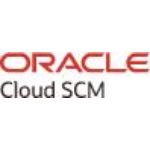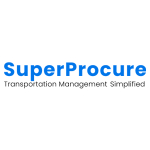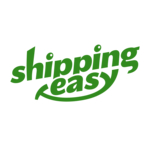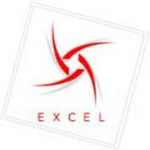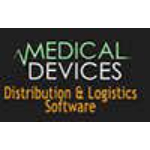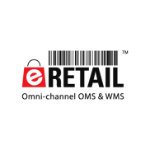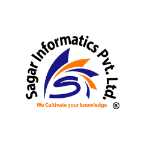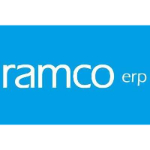TechnologyCounter provides genuine, unbiased real user reviews to help buyers make informed decisions. We may earn a referral fee when you purchase through our links, at no extra cost to you.
List of 15 Best Supply Chain Management Software
Showing 1 - 15 of 181 productsOracle Fusion Cloud SCM is a solution for streamlining supply chain management. With its advanced technology and user-friendly interface, this innovative software is designed to optimize business operations and drive growth. Say goodbye to outdated p...Read Oracle Fusion Cloud SCM Reviews
LOGIC ERP is a highly popular and widely recognized complete ERP software solution that caters to various industries such as Retail and POS, Warehouse Management, Marketplace, and eCommerce. It offers comprehensive business insights and built-in Bus...Read LOGIC ERP Reviews
SuperProcure is a SaaS transportation management system that streamlines the entire logistics process, from sourcing vehicles to managing freight accounting. This results in increased efficiency, cost optimization, smooth collaboration, enhanced tra...Read SuperProcure Reviews
Fieldproxy is a software designed to optimize and simplify field operations for businesses. With its user-friendly interface features, Fieldproxy revolutionizes the way businesses manage their field tasks, resulting in increased efficiency and produc...Read Fieldproxy Reviews
ShippingEasy is a shipping management software designed to simplify and streamline the shipping process for online businesses. With its user-friendly interface and robust features, ShippingEasy helps businesses save time, reduce costs, and improve cu...Read ShippingEasy Reviews
Medico SD, a revolutionary software designed specifically for medical professionals to streamline their workflow and improve patient care. With its user-friendly interface features, Medico SD has become the go-to solution for managing patient records...Read Medico SD Reviews
Astral Medical Stent Distribution Management offers comprehensive management of purchasing, stock, and sales processes, with the added benefit of real-time status updates. The software effectively handles customer and supplier data and also provides...Read Astral Medical Stent Distribution Management Reviews
AccellosOne is a software that streamlines logistics and supply chain management. It provides advanced features and tools for businesses to enhance their operations, improve efficiency, and boost profitability. With its user-friendly interface and ro...Read AccellosOne Reviews
Infor SCM is a supply chain management software that optimizes every aspect of the supply chain to drive operational efficiency and enhance customer satisfaction. It offers innovative solutions for planning, sourcing, execution, and collaboration, gi...Read Infor SCM Reviews
Focus 8 is a ERP software suite designed to meet the unique requirements of enterprise management. It is a solution that centralizes and automates essential business processes and operations within a company. With its seamless integration, Focus 8 s...Read Focus 8 Reviews
TranZact is an ERP software designed for small and medium-sized manufacturers in India. With its user-friendly interface, TranZact allows you to transform your business by digitizing the entire process, from sales inquiry to dispatch. It offers the...Read TranZact Reviews
Vin eRetail is a software designed to simplify and enhance your online sales process. With its intuitive interface and powerful features, Vin eRetail takes your e-commerce experience to new heights. Say goodbye to complex management and hello to effi...Read Vin eRetail Reviews
SIPL Courier, the fast courier service that simplifies your shipping needs. With years of experience in the industry, we pride ourselves on being a trusted is a solution for all your package deliveries. Our team is dedicated to delivering top-notch c...Read SIPL Courier Reviews
It allows organizations to efficiently manage employee attendance, time-off requests, and shifts, while also automating payroll processes across multiple countries. With advanced features such as geo-fencing and biometric integration, Ramco ERP ensur...Read Ramco ERP Reviews
Korber SCM is a supply chain management solution designed to streamline and optimize your business operations. With its advanced features and user-friendly interface, Korber SCM enables companies to effectively manage inventory, logistics, and fulfil...Read Korber SCM Reviews
- What Is Supply Chain Management Software?
- Top Reasons Why Businesses Need Supply Chain Management Software?
- What Are the Top Key Features of Supply Chain Management Software?
- What Are the Top Benefits of Supply Chain Management Software?
- What Are the Steps to Choose the Right Supply Chain Management Software?
- What Are the Types of Supply Chain Management Software for Different Industries?
- What Are the Technology Trends for Best Supply Chain Management Software?
- What Are the Deployment Options for Supply Chain Management Software?
What Is Supply Chain Management Software?
Supply chain management software refers to a category of software designed to enhance firms' ability to effectively oversee and control their supply chain operations. Supply chain tools software can encompass a multitude of firms, encompassing both buyers and sellers, and the interactions that occur among them.
Supply chain tools software particular software facilitates the storage, tracking, and management of these actions, hence enhancing operational efficiency for enterprises. The software commonly aids organizations in the monitoring of inventories, the management of logistics, and the oversight of supply chain activities, encompassing both real-time and historical perspectives.
This facilitates leaders in enhancing their decision-making abilities and optimizing their supply chain processes. Moreover, top supply chain software technology possesses the capability to predict forthcoming demand, streamline operations, and generate tailored reports that offer valuable insights into the performance of the supply chain.
In general, the utilization of supply chain management tools has the potential to serve as a robust instrument for facilitating enhanced efficiency and cost-effectiveness in the administration of supply chain activities within organizations.
The utilization of such technology can provide organizations with vital insights regarding the efficiency of their operations, enabling them to make informed decisions that optimize the functionality of their supply chain.
Top Reasons Why Businesses Need Supply Chain Management Software?
1. Improved accuracy of sales forecasts – Supply chain management software has the potential to enhance firms' ability to effectively forecast customer demand, hence mitigating the risks associated with excessive inventory or stock shortages.
2. Improved inventory control – Supply chain management SCM software facilitates the monitoring of inventory levels and enables organizations to promptly detect any supply chain concerns, such as instances of stock-outs.
3. Reduced supplier costs –The utilization of the best supply chain software facilitates enhanced coordination between organizations and their suppliers, resulting in cost savings achieved through heightened operational efficiency and increased competitiveness in pricing.
4. Automation of processes – Supply chain management tools has the capability to automate numerous essential operations that contribute to the smooth operation of a business, including order placement, order tracking, and inventory management.
5. Reduced transaction costs – The utilization of supply chain tools software in automated transaction processing has the potential to generate cost savings by facilitating faster and more dependable transaction processing.
6. Improved customer satisfaction – Supply chain management software SCM facilitates enhanced customer service by enabling firms to deliver items to clients in a more efficient and dependable manner, resulting in improved customer satisfaction.
7. Improved visibility into operations – Supply chain management SCM software provides firms with a comprehensive perspective of their operations on a worldwide scale, enabling them to promptly detect any potential problems and expeditiously implement appropriate remedies.
8. Improved traceability of product origins – Top supply chain software facilitates the tracking of items to their source, a critical aspect for ensuring food safety and preventing fraudulent activities.
9. Compliance with regulatory standards – The utilization of the best supply chain management software can facilitate organizations in ensuring their adherence to pertinent regulatory standards, specifically in relation to HACCP compliance for food safety.
10. Improved supplier relations – Supply chain management tools facilitates enhanced supplier relationship management for enterprises, enabling them to optimize operational efficiency and achieve cost reductions.
11. Improved risk management – The best supply chain software facilitates the early identification of possible hazards, hence mitigating the escalation of minor difficulties into significant crises for enterprises.
12. Reduced waste – The utilization of top supply chain management software enables firms to enhance the precision and effectiveness of their operational planning and execution, resulting in a decrease in wastage and surplus inventory.
13. Improved delivery times – Supply chain management software SCM facilitates enhanced planning and optimization of delivery times for enterprises, hence leading to expedited delivery of items to clients.
14. Improved data integration – Supply chain management SCM software facilitates the seamless and dependable exchange of data among enterprises and other entities, hence enhancing collaboration and operational efficiency.
15. Easy scalability – The utilization of the best supply chain management software facilitates the process of expanding or contracting business operations in accordance with requirements, hence enhancing the ability to effectively fulfill consumer needs.
What Are the Top Key Features of Supply Chain Management Software?
1. Order Management: Supply chain management software facilitates efficient order management processes, encompassing the rapid creation and modification of orders, real-time order tracking, and expedited generation of invoices and reports.
2. Inventory Tracking: Inventory levels can be effectively controlled using a unified interface, enabling users to access real-time information regarding the quantity of stock available and its specific location within the warehouse.
3. Warehouse Management: Enhance the efficiency of warehouse operations through the use of strategies aimed at maximizing labor productivity, leveraging advanced inventory management systems, and maintaining precision in tracking, sorting, and picking processes.
4. Transportation Management: The aim is to implement an automated system that oversees the complete transportation cycle, encompassing tasks such as coordinating pick-ups and deliveries, optimizing routes to save costs, and monitoring the progress of shipments in real-time.
5. Tracking & Forecasting: Utilize advanced analytics to examine past data and develop predictive models, enabling the generation of well-informed judgments pertaining to stock levels, demand patterns, and pricing strategies.
6. Supply Chain Visibility: Facilitate the capability for users to monitor and observe every facet of the supply chain in a timely manner, guaranteeing access to the latest information pertaining to manufacturing, storage, and transportation of goods.
7. Real-Time Delivery Tracking: The task at hand involves the real-time monitoring of product and shipment deliveries, with the purpose of furnishing clients with timely updates and pertinent information regarding the anticipated arrival time of their respective products or shipments.
8. Automated Reordering: The aim is to streamline the procedure of product reordering by providing users with the capability to establish reordering criteria, receive notifications when inventory levels are diminishing, and efficiently produce purchase orders.
What Are the Top Benefits of Supply Chain Management Software?
1. Improved Tracking: Supply chain management software facilitates the effective monitoring and tracking of the complete supply chain of organizations, encompassing the procurement of materials through the final delivery of products.
2. Enhanced Visibility: The best supply chain software offers firms improved insight over the complete supply chain, encompassing the sourcing of components to the final delivery of products.
3. Increased Efficiency: Supply chain management SCM software facilitates the optimization of various supply chain operations, leading to enhanced overall operational effectiveness.
4. Reduced Costs: Through the implementation of streamlined and automated supply chain practices, enterprises have the potential to mitigate the expenses linked to manual operational procedures.
5. Enhanced Collaboration: Supply chain management software SCM facilitates corporate collaboration by offering up-to-date supply chain data to both suppliers and customers.
6. Improved Accuracy: The implementation of supply chain management tools facilitates the automation of supply chain activities, hence mitigating the potential for human errors. This automation enhances accuracy and concurrently diminishes superfluous expenditures.
7. Increased Productivity: The implementation of the best supply chain management software has the potential to enhance worker productivity through the acceleration of processes and the allocation of human efforts towards jobs that yield significant value.
8. Improved Quality Control: The best supply chain software facilitates the monitoring and control of quality across the whole supply chain, thereby ensuring the fulfillment of consumer expectations regarding product standards.
9. Reduced Risk: The utilization of top supply chain management software facilitates the mitigation of inventory-related challenges and other plausible risks inside the supply chain for enterprises.
What Are the Steps to Choose the Right Supply Chain Management Software?
1. Identify and analyze your supply chain needs: Begin by doing an analysis to ascertain the specific requirements of your firm and subsequently identifying the specific facets inside your supply chain process that want enhancement.
2. Assess current software capabilities: When evaluating the present software capabilities, it is imperative to consider the program's capacity to facilitate the achievement of supply chain objectives, foster collaboration with suppliers and partners, and quantify essential performance metrics.
3. Research supply chain management software vendors: This study aims to conduct a comparative analysis of the distinct features offered by various software packages sourced from different vendors. It is imperative to prioritize the evaluation of robustness, flexibility, and scalability.
4. Evaluate supply chain management software options: This analysis will examine and contrast the license charges, access requirements, security features, customer service, simplicity of use, and training alternatives associated with the subject under consideration.
5. Assess user experience: Consider the intended usage of the software and the level of user satisfaction it is expected to achieve.
6. Create a focused implementation plan: Provide a comprehensive framework delineating a well-defined chronology and strategic approach to effectively execute the software implementation process.
7. Test and monitor performance: After the implementation of the software, top supply chain software is essential to conduct performance testing and identify potential areas for improvement.
8. Adapt the system: If necessary, explore strategies to modify the system in order to accommodate the evolving requirements of your supply chain.
What Are the Types of Supply Chain Management Software for Different Industries?
1. Manufacturing Industry Supply Chain Management Software: This particular kind of Supply chain management software SCM is specifically designed to oversee the various processes associated with product production, including material requirements planning (MRP) and enterprise resource planning (ERP).
This software is utilized for the purpose of facilitating inventory management, order processing, and production scheduling within enterprises.
2. Retail Industry Supply Chain Management Software: Retailers utilize this particular category of the best supply chain management software to effectively oversee and coordinate the reception of merchandise from vendor partners, as well as the transportation of items from distribution facilities to either retail locations or end consumers.
This software solution aids merchants in effectively overseeing various aspects of merchandise planning, allocation, fulfillment, and replenishment processes.
3. Logistics Industry Supply Chain Management Software: Logistics organizations, including those engaged in trucking, shipping, and storage, employ this particular software to effectively oversee their freight, shipments, and inventories.
Additionally, it has the potential to facilitate the management of various business functions such as customer support, billing and invoicing, warehouse management, fleet management, and route optimization.
4. Food and Beverage Industry Supply Chain Management Software: This software solution aids organizations operating in the food and beverage industry by facilitating comprehensive management of their supply chain processes.
This technology has the capacity to effectively oversee and control many aspects of manufacturing, distribution, compliance, orders, and traceability operations.
5. Healthcare Industry Supply Chain Management Software: This particular software is specifically developed to assist healthcare businesses in the monitoring and administration of their pharmaceutical items, equipment, and other resources along the entire supply chain, starting from the supplier and concluding with the patient.
The utilization of top supply chain management software technology encompasses several applications such as inventory management, value-based purchasing, price comparison, supplier management, and compliance adherence.
What Are the Technology Trends for Best Supply Chain Management Software?
The technology trends for best supply chain management software include:
1. Automation: The implementation of automation in critical supply chain operations, including planning, execution, and analytics, has the potential to enhance precision and productivity.
2. Cloud-based solutions: Cloud-based software offers a safe and cost-effective alternative for storing and sharing data with partners in the supply chain.
3. Internet of Things (IoT): The Internet of Things (IoT) facilitates the real-time monitoring of equipment and assets by manufacturers, hence enhancing visibility inside the supply chain and enabling more effective tracking and management.
4. Artificial Intelligence (AI): Artificial intelligence (AI) has the potential to facilitate a greater number of decisions based on data, so enhancing the accuracy of forecasting and enabling more effective long-term planning.
5. Advanced Analytics: Advanced analytics provide supply chain teams with enhanced capabilities to get deeper insights into various aspects of supply chain performance, including identifying bottlenecks and other critical factors.
What Are the Deployment Options for Supply Chain Management Software?
Supply chain management software packages offer a range of deployment choices. The available solutions encompass on-premises deployments, cloud-hosted software-as-a-service (SaaS), and hybrid alternatives that integrate both approaches.
1. On-premises installations refer to instances when the ccloud based supply chain management software is hosted inside the hardware owned by the firm. The conventional method for software deployment is widely practiced due to its inherent advantages in terms of control and adaptability.
Organizations possess the capability to tailor the program according to their specific requirements, thereby exerting control over data integrations and security protocols. Nevertheless, it is important to note that this option necessitates the highest level of upkeep and initial investment.
2. Software as a Service (SaaS) refers to a deployment paradigm that utilizes cloud infrastructure, wherein the software is centrally hosted and managed by the vendor responsible for its development.
This obviates the necessity of personally installing, configuring, and maintaining the program, and is often more cost-effective compared to a deployment conducted on-site. Numerous enterprises also exhibit a preference for Software-as-a-Service (SaaS) solutions due to its inherent scalability and user-friendly nature.
3. Hybrid deployments encompass the integration of both on-premises and Software as a Service (SaaS) technologies. Organizations possess the autonomy to determine the specific components they prefer to deploy in the cloud infrastructure and those they opt to maintain on their internal servers.
Cloud based supply chain management software deployment option provides a greater degree of freedom compared to the other two alternatives and can serve as a viable solution for enterprises of varying scales.
